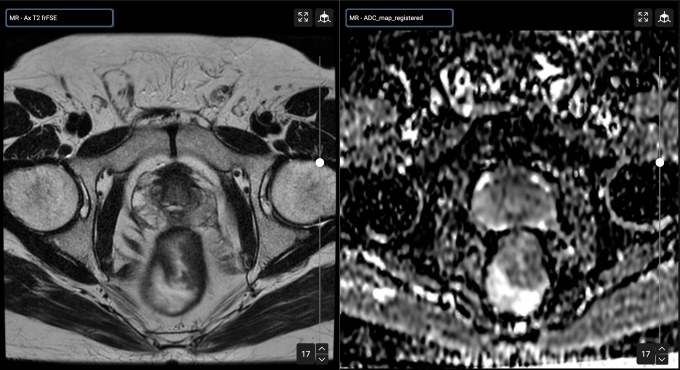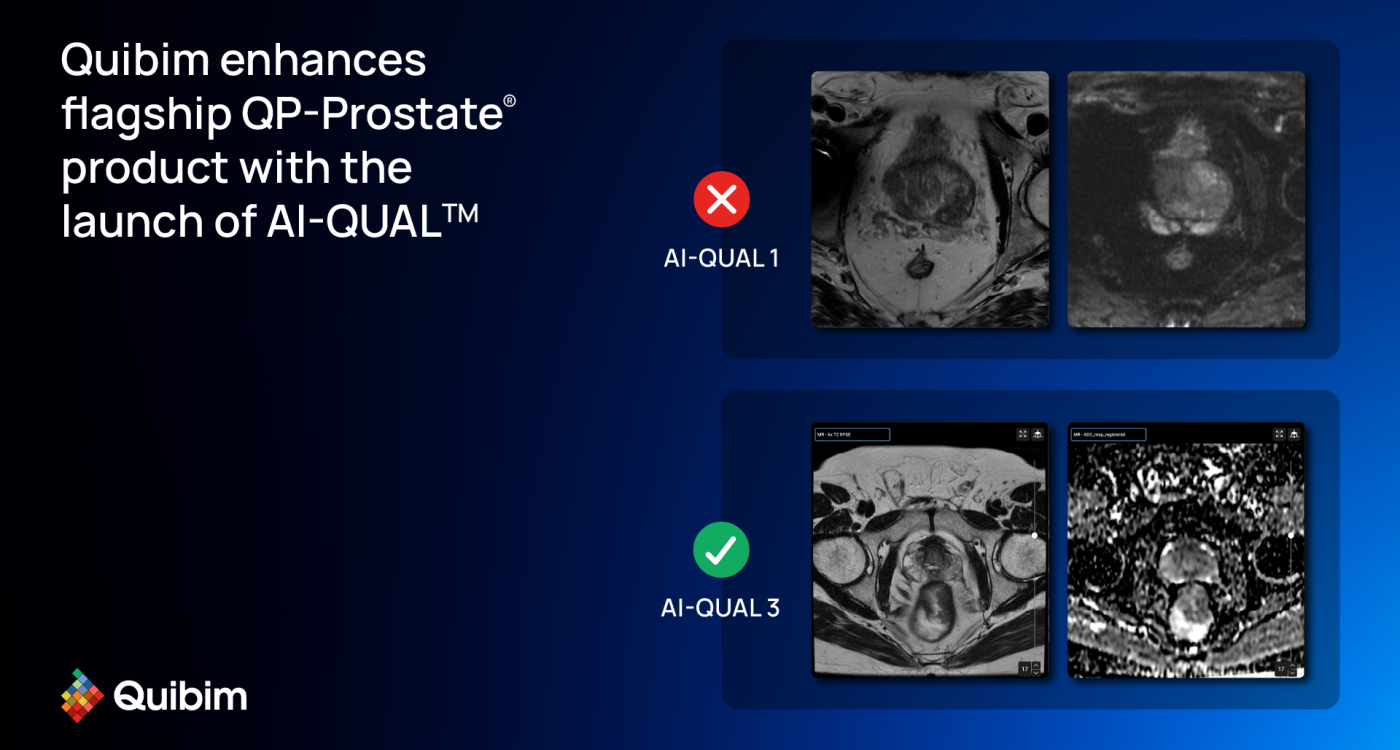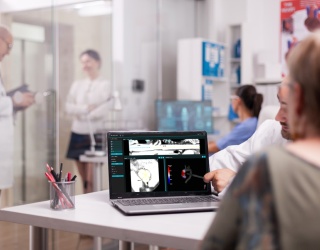Quibim introduces AI-QUAL, a new artificial intelligence-powered module within its QP-Prostate® platform. Designed to automate the evaluation of prostate MRI image quality, AI-QUAL brings a standardized, objective approach to a process that has long relied on manual interpretation. With this innovation, Quibim aims to streamline radiology workflows, reduce variability, and enhance clinical confidence in prostate cancer diagnostics.
“AI-QUAL represents a major advancement in our mission to transform imaging into a driver of precision health,” says David Bazaga, VP of Product at Quibim.“By automating image quality assessment, we’re helping radiologists reduce variability, improve diagnostic accuracy, and ultimately deliver better outcomes for patients.”

The system works by analyzing MRI images and assigning a diagnostic quality score from 1 to 3, in alignment with the PI-QUAL v2 framework. In addition to scoring, AI-QUAL automatically detects image-degrading factors such as rectal gas distortion and metal interference—common causes of reduced image clarity. This helps clinicians identify scans that may need to be repeated or interpreted with caution.
Low-quality imaging has been directly linked to an increase in PI-RADS 3 findings, which may result in unnecessary biopsies and ultimately impact patient care. AI-QUAL addresses this issue by offering a fast, standardized method to ensure image quality is sufficient before clinical interpretation.
“We are proud to introduce AI-QUAL as part of our growing suite of prostate imaging solutions,” adds Dr. Ángel Alberich-Bayarri, CEO and Founder of Quibim.“This tool directly addresses a critical gap in prostate MRI quality control and reinforces our commitment to supporting radiologists with cutting-edge, clinically validated AI technologies.”
Already integrated into the QP-Prostate platform, AI-QUAL strengthens Quibim’s position as a leader in AI-powered medical imaging. The solution is designed to integrate seamlessly into existing clinical workflows, helping radiologists focus on what matters most: delivering fast, reliable diagnoses for improved patient outcomes.










